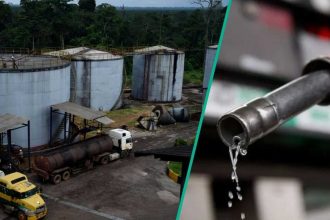The House of Representatives on Thursday directed its joint Committees on Gas Resources, Public Assets, Petroleum Upstream, Midstream, and Downstream to investigate all funds appropriated and spent on the rehabilitation of the Port Harcourt, Warri, and Kaduna refineries between 2010 and 2024.
The lawmakers expressed concern over the continued non-functionality of Nigeria’s three state-owned refineries despite reportedly over $18 billion spent on their rehabilitation over the past two decades.
The motion, titled “Non-functionality of State-owned Refineries,” was presented by Sesi Oluwaseun Whingan and unanimously adopted at plenary.
The joint committee is tasked with assessing the current operational status of the refineries, examining how public funds were utilised, and identifying agencies or individuals responsible for infractions or mismanagement.
The committee is expected to report back to the House within four weeks for further legislative action.
Whingan noted that despite repeated promises and massive investments in turnaround maintenance, the refineries remain non-operational, forcing Nigeria to rely heavily on imported petroleum products. He recalled that in 2007, under former President Olusegun Obasanjo’s administration, Alhaji Aliko Dangote and other private investors had acquired the refineries.
However, the transaction was later reversed by the late President Umaru Musa Yar’Adua, who opted for government-led rehabilitation, a decision that has yet to yield tangible results.
He cited statements from Dangote and Obasanjo describing the refineries as unviable and a waste of the billions invested.
The Group Chief Executive Officer of NNPC Limited, Engr. Bayo Ojulari, also confirmed in a July 10 interview that the current administration is not responsible for past mismanagement but hinted at a possible sale of the assets.
Whingan described the situation as a gross misuse of public funds and a betrayal of public trust, warning that Nigeria’s energy security and economic stability remain at risk, particularly following the removal of petrol subsidy.
He stressed that the absence of functional refineries contributes to inflation and exacerbates public hardship.
Deputy Speaker Benjamin Kalu, who presided over the session, put the motion to a voice vote, and it was unanimously passed.
Please follow and like us:


















